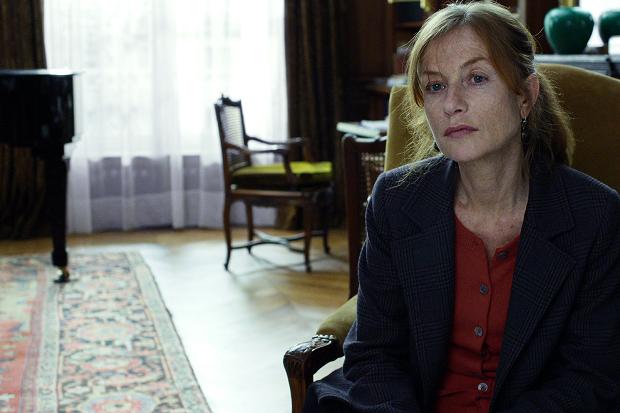
Last year the front running contender and winner in the Oscar’s Foreign Film Category was the A Separation. It’s a film about a couple in a difficult situation. Simin, played by the lovely Leila Hatami, wants to leave Iran (I’d leave with her in a heartbeat). But Nader, her husband, feels he must stay put to help care for his ailing father. And they have a teenage daughter. Simin and Nader struggle with an seemingly impossible problem of conflicting desires and their situation is further complicated by an incident and legal trouble with the woman hired to help care for Nader’s father. Interestingly this years foreign film Oscar contender is about another couple, Anne and Georges, in an impossible situation. Their’s involves the ultimate separation, death.
Amour is a serious film about a serious subject and it’s meticulously acted, unsentimental and unsparing. Leave the kleenex at home, this is no On Golden Pond. Much has been made of Emmanuelle Riva’s amazing performance, but the next day I found myself thinking more about Eva, Anne and Georges’s daughter, played by Isabelle Huppert. It is through Eva that the situation widens into a family drama, that, at first, seems to be almost peripheral to the main action. But I’d argue that the relationship between the couple and their daughter contributes greatly the overall starkness of the film.
In a scene between Eva and George in the living room Eva (with the camera only on her) says, “I don’t want to embarrass you but when I was little I used to hear you making love. It was a comfort to me. It made me feel we would always be together”. For me this line drops into the film like a handful of marbles. It scatters and disappears in various directions where it remains hidden, but always present. It’s delivered unflinchingly with courage and vulnerability by the always fascinating Huppert.
The line, for me, articulates longings for an impossible connection that forms an undercurrent to the bleak despair of the main story. It a fascinating line, when you think about it, because, in general, the idea of one’s parents making love usually tends to gross kids out. Or maybe not in France, I don’t know. Anyway, it’s interesting that as a child Eva found comfort in hearing her parents have sex and experienced it as something that made her feel safe and connected. Yet sex is the main thing between the parents that the child is necessarily excluded from — an form of closeness and connection from which the child must remain separate.
The main action of the film is devastating enough, an elderly man dealing with his dying, and incapacitated wife. But the awkward and suffering presence of Eva, I think, deepens the mystery and heartache of the ultimate separation.